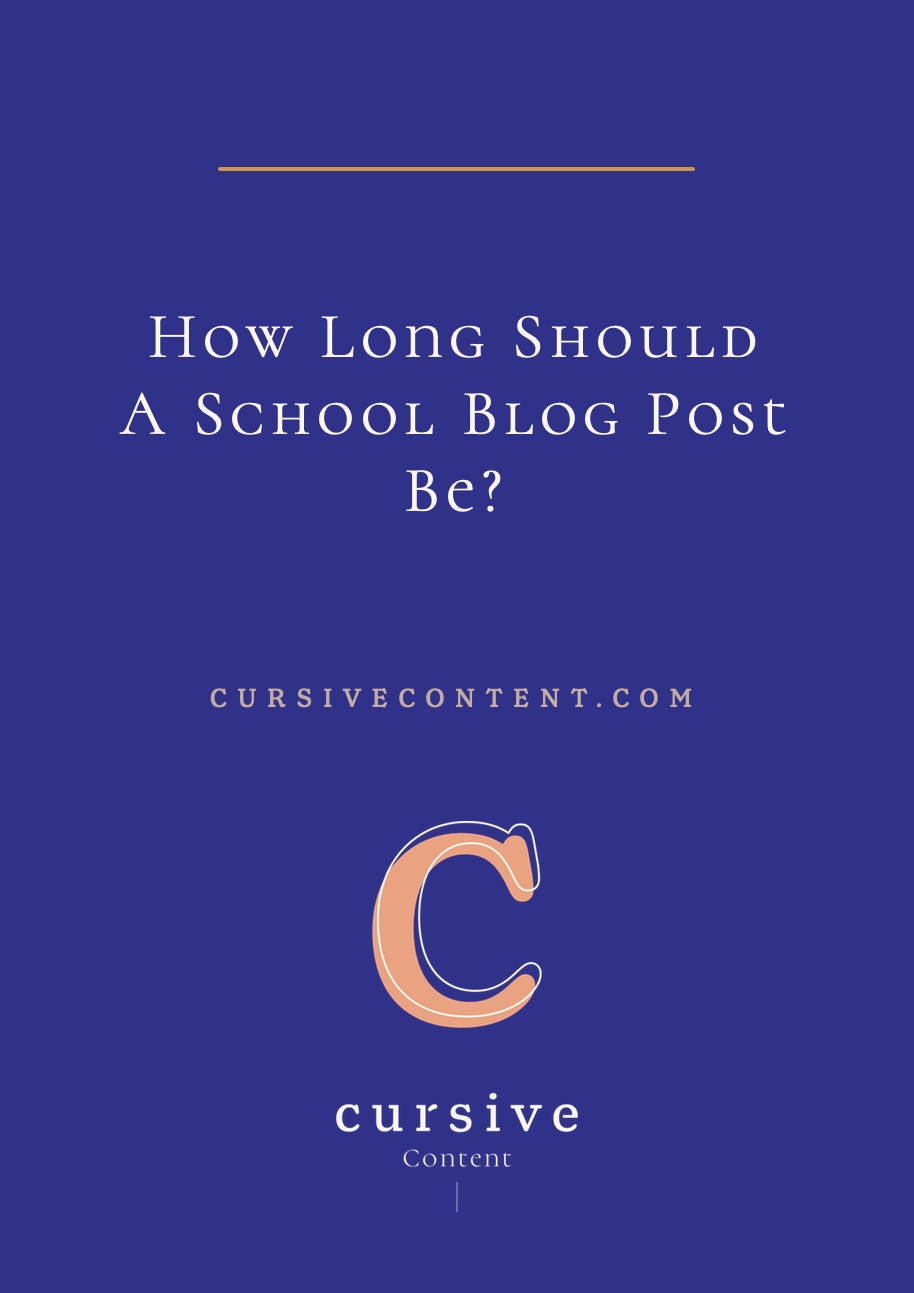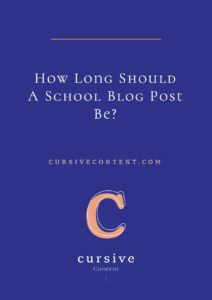How Long Should A School Blog Post Be?

When I get reader questions, I always wish there was an easy answer. A specific formula. A magic bullet.
Unfortunately, when it comes to content creation and storytelling, there is rarely a “right” answer. There are, however, trends that can give you direction. There are results others have achieved that you can learn from. But when it comes to specific, proven, always-right answers, they are few and far between.
That’s why when a workshop attendee asked me, “How long should a blog post be?”, my response was:
As long as it needs to be to provide unique value to your audience.
Yes, that’s vague. But when you pair that hard-to-define advice with some of the trends in online content, you can understand how people are consuming online content, and how people are writing online content.
Let’s take a look at what the experts (in this case, a recent study by Orbit Media) are finding out about blog post length and how it affects the online experience:
The finding: The average blog post takes 3 hours 16 minutes to write.
That’s a 26% increase from last year. And twice as many bloggers are now spending 6+ hours on their average post.
What that means: Bloggers are putting more time and energy into crafting content that truly stands out online. It’s no longer about quick hits. It’s about taking the time to create posts of quality, rather than of quantity.
What you can do: Give yourself the time you need to create valuable content. If it takes you hours to write a fantastic story, and that means that you’ll be publishing less content on your school’s blog, that’s OK.
The finding: 33% of bloggers who spend 6+ hours per post report “strong results.”
Only 23% of bloggers who spend less than 6 hours per post report “strong results.”
What that means: That extra effort is paying off for bloggers. Those quality, thoughtful posts are getting results. They’re cutting through the clutter.
What you can do: Remember the reason you’re writing blog content. Is the goal to publish lots of stories, or is it to get specific results? If you have specific results in mind, use those to judge your output against.
The finding: The length of the average blog post is up 19%, to about 1,050 words.
The percentage of posts that are 500 words or less is half what it was two years ago, and those that are 2,000+ words long have doubled every year.
What that means: Longer, media-rich posts are on the rise, and we will continue to see more of them. Which makes sense — readers are looking for value, and for information that stands out from the rest.
What you can do: Try writing a longer post on a topic you want to claim expertise in. These longer posts will be your blog’s content pillars and will help hold up your online story. Not every post has to be more than 1,000 words, but try to balance shorter posts with longer ones.
While these are just a sampling of findings from one research report, they’re a good indication of which way the trends are heading. So, how long should a school blog post be?
As long as it needs to be to provide unique value to your audience.
And if that means it takes you 6+ hours to write and it’s 2,000+ words, go for it.
MORE ARTICLES
-
 Why “Strong Academics & Caring Community” Aren’t a School Story
Why “Strong Academics & Caring Community” Aren’t a School Story -
 Why Most Schools Don’t Actually Have a Clear Story
Why Most Schools Don’t Actually Have a Clear Story -
 Clarity in 50 Words or Less: How to Write Your School’s One-Sentence Story
Clarity in 50 Words or Less: How to Write Your School’s One-Sentence Story -
 The 4 Building Blocks of a Strong School Story (and Why AI Needs Them)
The 4 Building Blocks of a Strong School Story (and Why AI Needs Them) -
 How to Stop ChatGPT from Making Your School Sound Generic
How to Stop ChatGPT from Making Your School Sound Generic -
 What Should Your School Do with Its Blog Now That AI Is Changing Search?
What Should Your School Do with Its Blog Now That AI Is Changing Search? -
 What Is Your Private School’s Bold & Unifying Big Promise?
What Is Your Private School’s Bold & Unifying Big Promise? -
 Viewbook Best Practices for Private Schools
Viewbook Best Practices for Private Schools

